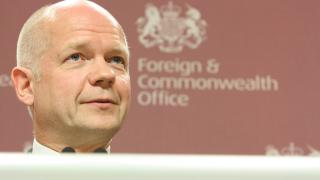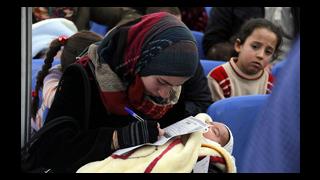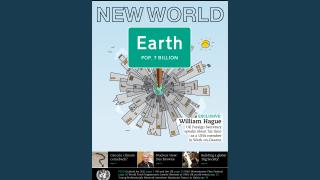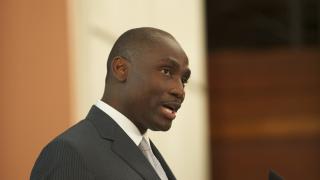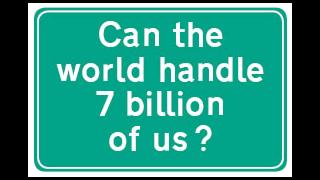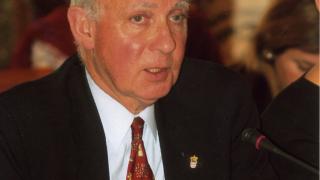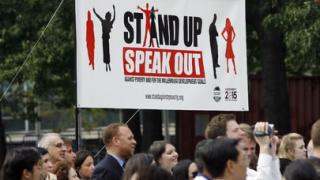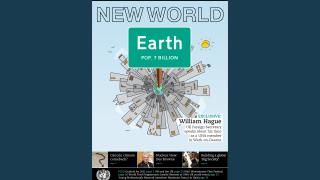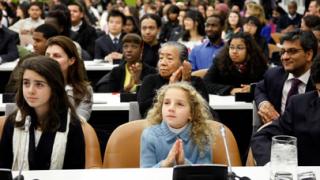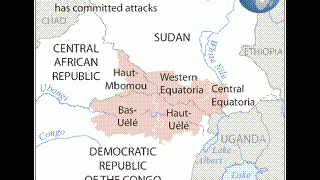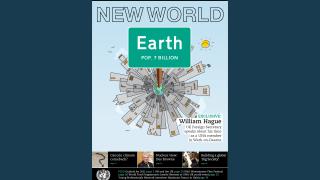
The UN International Day of Persons with Disabilities was celebrated around the world on 3 December, although in the UK the day remains, for the most part, little known outside the disability sector. At Action on Disability and Development International (ADD), we took the opportunity to showcase, in partnership with the disability movements in Africa and Asia, the achievements of disabled people and to highlight the barriers that still prevent them from claiming the basic human rights that most of us take for granted - the right to earn a living and raise a family, access to education and healthcare, the right and the ability to vote, and respect from the community they live in.
In the last 25 years that ADD has been working with disabled people in the developing world, there have been many successes. Governments have passed laws protecting and promoting the rights of disabled people, and 96 countries have ratified the UN Convention on the Rights of Persons with Disabilities. But as the theme of the recent International Day acknowl- edged, we now need to make sure that the laws asserting disabled people's rights are implemented.
The theme for the 2010 commemoration was 'Keeping the promise: mainstreaming disability in the Millennium Development Goals (MDGs). Disability affects all eight of the MDGs, making it an issue central to the reduction of poverty. Accordingly, ADD and its partner organisations encouraged activities around the world to highlight disabled people's priorities. In Sudan the government marked the day with a series of high-level political committee meetings to discuss how to include disabled people in development opportunities, and a conference to consider the role of the media in raising awareness of disability issues.
In Ghana, Tanzania, Uganda and Cambodia, disabled people organised activities ranging from rallies to radio talks, from drama performances to ministerial discussions, to raise awareness of disabled people's rights, participation in the political process, and inclusion in development initiatives. Bangladesh meanwhile held its sixth National Disability Convention, attended by more than 6,000 disabled people, ministers, parliamentarians, and representatives of local government, civil society, business and the media.
The need for these activities is clear. Of the estimated 650 million disabled people worldwide, four-fifths live in developing countries and 82 per cent live below the poverty line. On the other side of the coin, we know at least 20 per cent of the world's poorest people are disabled. The links between poverty and disability are well established and the international community has accepted that the MDGs can only be met if disabled people are included in both the design and implementation of efforts to achieve the goals. More sophisticated methods for monitoring the progress of specific groups is also needed.
Beatrice Guzu, executive secretary of the National Organisation of Women with Disabilities in Uganda, describes the situation on the ground: "they endure stigma, discrimination, violence and extreme poverty, but Ugandan women living with disabilities say the greatest challenge facing them centres on their reproductive health. In addition to the impacts of physical, mental, intellectual and sensory impairments, we are double discriminated (against), first as women, and then as disabled." According to Guzu, while women's empowerment and gender equality strategies emphasise the importance of addressing discrimination against women, such strategies do not target women with disabilities.
The same is true for other groups. Disabled people are regularly excluded from HIV/AIDS prevention and treatment efforts, and estimates indicate that a shocking 98 per cent of disabled children in developing countries are likely not in school, impacting on their ability to earn a living in later life.
Innocent from Burkina Faso is one of the children behind this statistic. He spent his school years locked in a hut because his family did not know how to cope with his disability. Through a census carried out by one of ADD's partners, Innocent was found when he was 16 and is now slowly integrating into community life.
Like all the Millennium Development Goals, MDG 2 on universal primary education will never be achieved until disabled people are explicitly brought into the equation. Only by making the MDGs inclusive, will stories like Innocent's become a thing of the past.
Haji Saghir Alam OBE is Chair of the Trustees of ADD International, a UK-based development agency working with disability movements in Africa and Asia to facilitate disabled people to come together to make decisions about their own lives and to campaign for their rights. To learn more, visit www.add.org.uk

